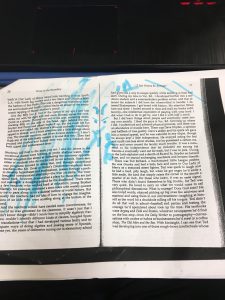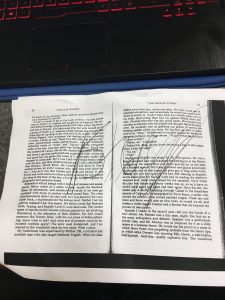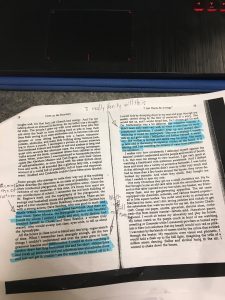Identity is something that is intrinsic to any human being. A unique collection of memories, relationships, and, physical space. But We all cover something in our identity. Whether it is to make some small talk flow better or get that job you really need, but it works in an even broader sense like covering your national origin or race. Why do we hide these things, because it is not mainstream? Covering is the act of withholding part of one’s identity when in a social situation and is a critical component of assimilation. The word covering was coined by Yoshino Kenji a Constitutional Lawyer. He uses it in his book of the same name. Despite not making any sense, some people just hate other people for factors far out of there control. Now, in all honesty, the fact that you’re gay should not come up during any job interview. Let alone be one of the many criteria you’re judged by during the hiring process. As a large population, especially within the United States, still views being gays unfavorable trait and as It’s relatively unknown how they will respond to such topics. Now, active withholding this information with changing you are perceived to others is Covering. However, Kenji Yoshino says it best “Everyone covers. To cover is to down a disfavored to fit into the mainstream.”. So, for example in the statement, I said earlier about being gay. Covering for being gay would be portraying yourself as straight. So, let’s say you’re in the company showers and the guys are talking about celebrities that they think are attractive and everyones throwing out names like Scarlett Kohansson, Kim Carasson, and, Jegan Fox. You really want to say Jeff Goldblum, but you know that you’ll be ostracized for saying that, so you say Jessica Elba. It basically amounts to pre-emptive reaction to social ostracization.
Hiding has been part of humanity since before we were human. Actively withdrawing yourself to a secluded area too be sheltered from threats is something that all life does. However, like all survival strategy strategies, it’s only effective in the right place at the right time. Just like how you don’t conserve water in a rainforest or go to Antarctica naked you shouldn’t have to cover in. And you shouldn’t have to hide in a society that should expect you for who you are. Covering, just like ill-applied survival, can result in serious damage to one’s health and sanity. One can become disconcerting with themselves and society. Hatred can be a natural response to pent up emotions especially to those who are the source. “The True Self is associated with human spontaneity and authenticity: “Only the True Self can be creative and only the True Self can feel real.” The False Self, in contrast, gives an individual a sense of being unreal, a sense of futility. It mediates the relationship between the True Self and the world.” No matter what in someone’s life not being able to be who you are can be maddening. It Leads to a disregard of those who put you down and not in their self-interest. Such as saying things that take their cause for social recognition back years. It is almost paradoxical as those who wish to bring their authorization to an end must be stronger than their oppressors. So, murderers are terrible people. I’m glad to live in a society where murderers are fully punished by the law. Outside of the moral ambiguity of medical procedures and horticulture. Someone with a gun going around killing other people is wrong and gets punished but Is that a violation of their rights. Do society have the right forcing people who true self is to kill others to not by punishing those who do.
Yoshino’s paper on Covering really shows how it connects to topics like true self and civil right. It also shows how covering is something humans have been probably doing since the beginning of the mainstream and how covering isn’t the problem but a symptom of the problem. The civil right movement Still has more ground to cover as legal representation does not mean social acceptance.



